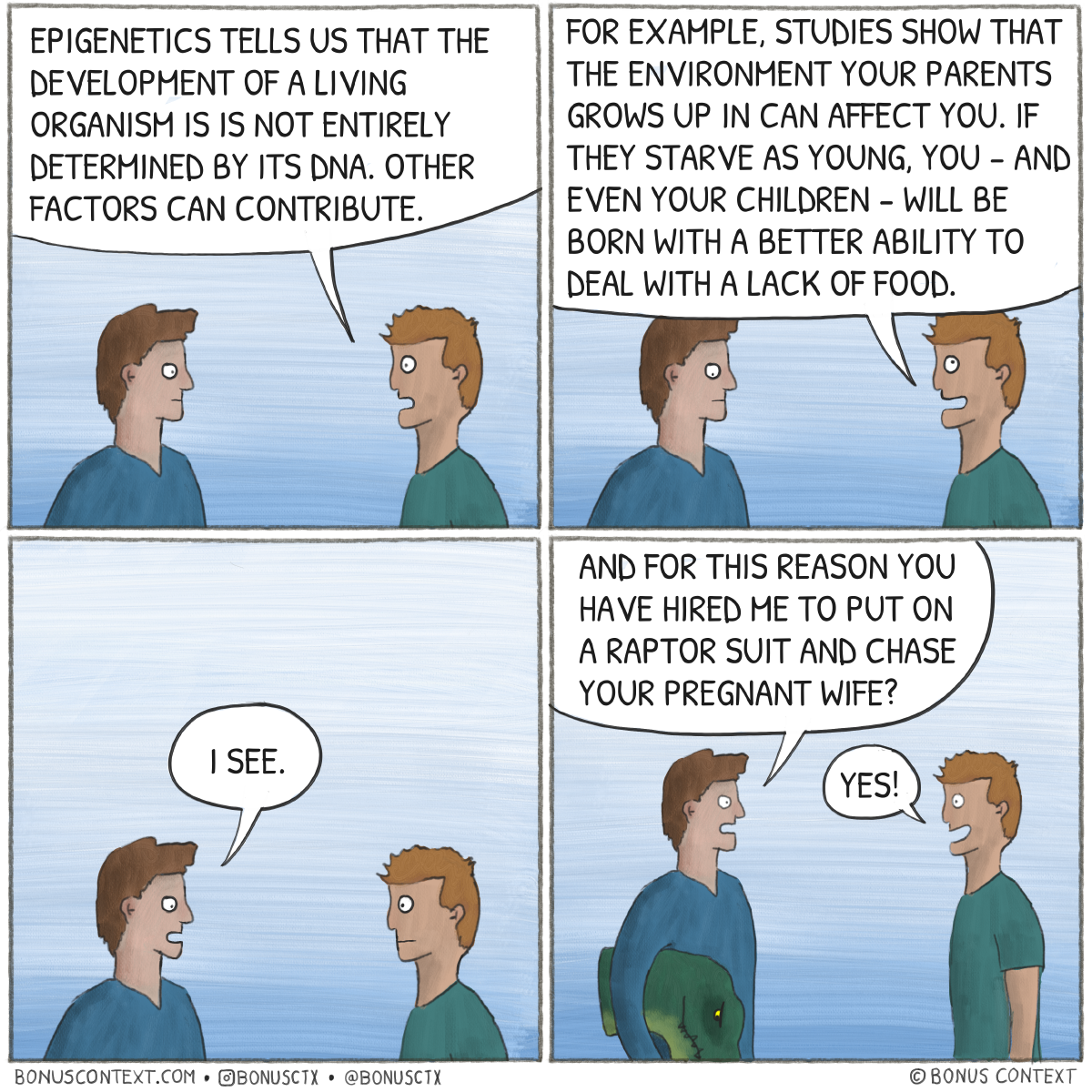this post was submitted on 11 Nov 2024
400 points (96.5% liked)
Comic Strips
18123 readers
2462 users here now
Comic Strips is a community for those who love comic stories.
The rules are simple:
- The post can be a single image, an image gallery, or a link to a specific comic hosted on another site (the author's website, for instance).
- The comic must be a complete story.
- If it is an external link, it must be to a specific story, not to the root of the site.
- You may post comics from others or your own.
- If you are posting a comic of your own, a maximum of one per week is allowed (I know, your comics are great, but this rule helps avoid spam).
- The comic can be in any language, but if it's not in English, OP must include an English translation in the post's 'body' field (note: you don't need to select a specific language when posting a comic).
- Politeness.
- Adult content is not allowed. This community aims to be fun for people of all ages.
Web of links
- !linuxmemes@lemmy.world: "I use Arch btw"
- !memes@lemmy.world: memes (you don't say!)
founded 2 years ago
MODERATORS
you are viewing a single comment's thread
view the rest of the comments
view the rest of the comments

Epigenetics is black magic to me. The starvation thing is true, but it mostly happens in the liver and pancreas and stuff. The testicles and ovaries don't express the genes relating to starvation, even when starved. So how does the reproductive DNA pass on epigenetic data to the child and grandchild?
https://www.whatisepigenetics.com/what-is-epigenetics/
Although the immediate processing of food might occur in major digestive organs, the effect of increased or decreased nutrient availability will be felt throughout the body. One primary effect of starvation is the breaking down of cells (autophagy) in order to reuse their components for more necessary bodily functions - like the atrophying of muscles.
Naturally, your germ line cells are one of your core bodily functions, so the nutrients will necessarily need to make their way there.
One recent paper[1] hypothesized that the byproducts of this cellular breakdown can cause cells to bundle up DNA that encodes some genes, rendering them less accessible and therefore less active. This can even be passed trans-generationally (presumably by altering the tight storage of specific genes in the germ line cells).
Broadly this mechanism is called epigenetics, where specific histone protein modifications cause regions of DNA to coil up tightly, making it far less likely to be expressed, or unwind and become far more active. It’s a very neat mechanism by which many characteristics can become generational despite not having a clear genetic component.
[1] https://pmc.ncbi.nlm.nih.gov/articles/PMC10244352/